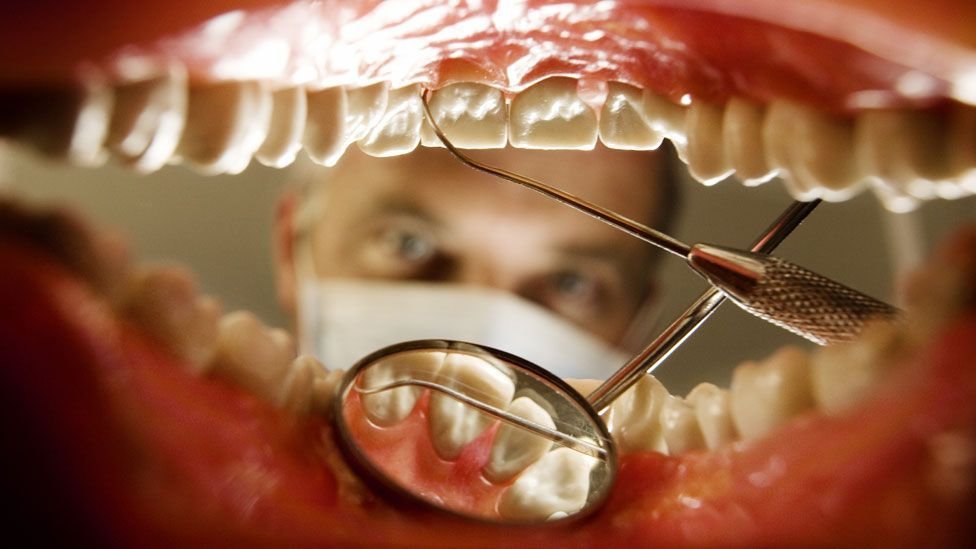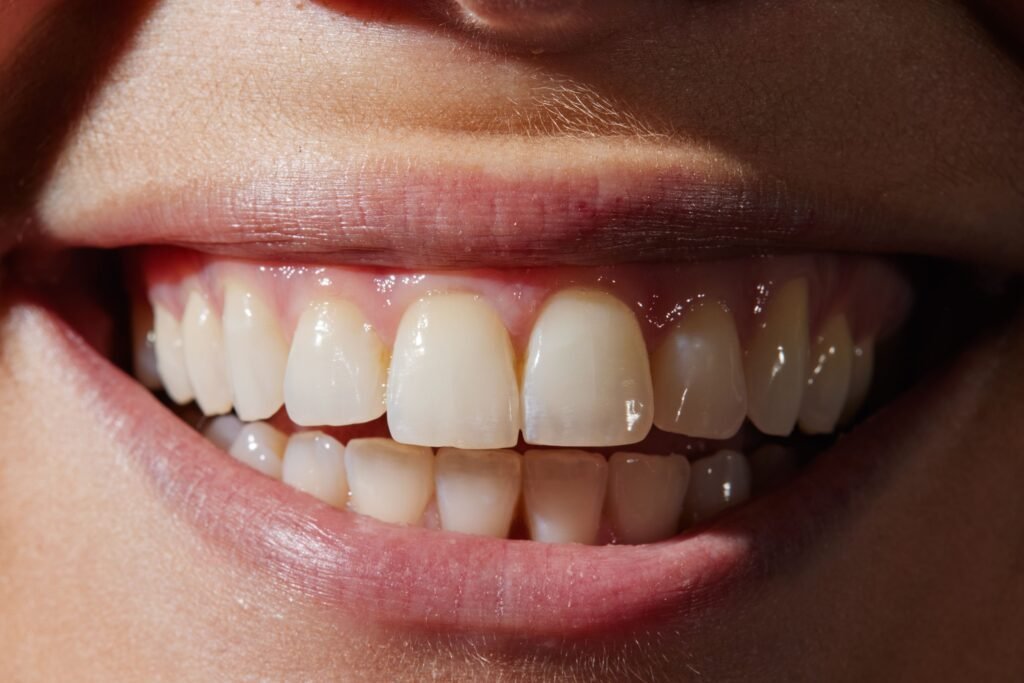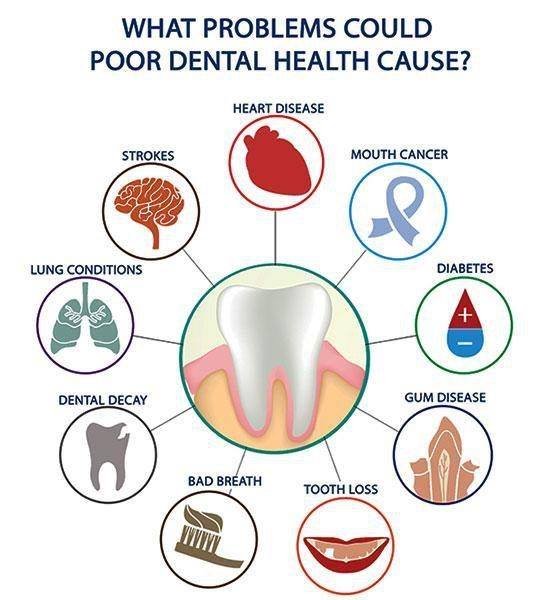Physical Address
304 North Cardinal St.
Dorchester Center, MA 02124
Physical Address
304 North Cardinal St.
Dorchester Center, MA 02124

Learn how often and why you should go to the dentist for optimal oral health.
Regular dental check-ups are crucial for maintaining optimal oral health. These appointments allow your dentist to thoroughly examine your teeth, gums, and overall oral cavity for any potential issues. Early detection of dental problems is key in preventing further complications and reducing the need for extensive dental treatment. During these check-ups, your dentist will also perform professional teeth cleaning to remove any plaque or tartar build-up, which helps prevent gum disease and tooth decay.
Aside from addressing existing dental concerns, regular check-ups also serve as an opportunity for your dentist to provide personalized oral health advice and education. They can offer guidance on proper brushing and flossing techniques, recommend suitable dental products, and discuss any lifestyle factors that may be affecting your oral health. By investing in regular dental check-ups, you’re investing in your long-term oral health and overall well-being.

Preventive dental care plays a crucial role in maintaining optimal oral health. By focusing on preventive measures, such as regular check-ups, cleanings, and screenings, individuals can work towards preventing potential dental problems before they become more severe. This approach not only helps in avoiding potential pain and discomfort but also contributes to overall wellness.
One of the main aspects of preventive dental care is early detection and treatment of dental issues. Through regular check-ups, dentists can identify any signs of tooth decay, gum disease, or oral infections at their early stages. This allows for prompt intervention and appropriate treatment, preventing the problems from worsening and potentially leading to more extensive and expensive procedures. Regular cleanings also help in removing plaque and tartar build-up, reducing the risk of developing cavities and gum disease.
Visiting the dentist regularly is crucial for maintaining good oral health. While daily brushing and flossing are essential, there are certain signs that indicate you should schedule a visit to the dentist. One of these signs is persistent toothache or tooth sensitivity. If you experience ongoing pain or discomfort in your teeth, it could be a sign of tooth decay, an infection, or even a cracked tooth. Ignoring these symptoms can lead to further complications, so it’s important to seek professional dental care.
Another sign that warrants a visit to the dentist is bleeding gums. Healthy gums should not bleed when you brush or floss your teeth. If you notice bleeding gums, it may be an indication of gum disease, which can lead to tooth loss if left untreated. It’s important to address this issue promptly, as gum disease has also been linked to other health problems such as heart disease and diabetes. A dentist can evaluate the condition of your gums and provide appropriate treatment to prevent further damage.
In conclusion, paying attention to the signs that your oral health is in trouble is crucial. Persistent toothache or sensitivity, as well as bleeding gums, are clear indicators that you should schedule a visit to the dentist. Regular check-ups and prompt treatment can help prevent more serious dental issues and protect your overall health.
| Signs | Indication |
|---|---|
| Persistent toothache | Could indicate decay, infection, or tooth damage |
| Gum bleeding and inflammation | May signal gum disease or gingivitis |
| Loose or sensitive teeth | Could indicate various dental issues |
| Swelling in the mouth or jaw | May indicate infection or abscess |
| Persistent bad breath | Can be a sign of underlying dental problems |
| Difficulty chewing or swallowing | May indicate issues with teeth or jaw alignment |
| Sensitivity to hot or cold | Could indicate tooth decay or enamel erosion |
| Cracked or chipped teeth | May need repair to prevent further damage |
| Changes in bite alignment | Could indicate teeth shifting or other issues |
| Persistent dry mouth | May be a sign of certain medical conditions or medications |
Regular dental check-ups are a crucial component of maintaining optimal oral health. It is generally recommended that individuals visit their dentist at least twice a year for routine examinations and cleanings. However, the frequency of dental check-ups may vary depending on individual factors such as age, oral health status, and risk factors for dental issues.
Children and adults alike should adhere to the recommended frequency for dental check-ups to ensure early detection and prevention of oral health problems. Regular visits to the dentist enable early identification of cavities, gum disease, and other dental issues that may not be apparent to the naked eye. Additionally, routine cleanings help remove plaque and tartar buildup, reducing the risk of future dental problems.
By following the recommended frequency for dental check-ups, individuals can take proactive steps towards maintaining healthy smiles and preventing the progression of dental issues. Regular dental examinations allow dentists to monitor oral health, provide professional cleanings, and offer personalized advice on maintaining good oral hygiene. Remember, prevention is key when it comes to dental health, and regular check-ups play an essential role in achieving this goal.
Dental health is intricately connected to overall health, highlighting the importance of maintaining good oral hygiene and seeking regular dental check-ups. Poor oral health can contribute to various systemic diseases and conditions, including heart disease, diabetes, and respiratory infections. Research has shown that the bacteria and inflammation associated with periodontal disease can enter the bloodstream and affect other parts of the body, leading to an increased risk of developing these health issues. Furthermore, studies have established a strong link between oral health and pregnancy outcomes, suggesting that gum disease may contribute to preterm birth and low birth weight.
The connection between dental health and overall health extends beyond adults. Children, in particular, can face serious consequences if their dental health is neglected. Dental problems in childhood can impact growth, development, and school performance. Additionally, poor oral health in children has been associated with an increased risk of chronic conditions such as asthma and obesity. By recognizing the connection between dental health and overall health, individuals can prioritize their oral care and seek regular check-ups to maintain optimal well-being.

Dental issues can arise unexpectedly and may require immediate attention to prevent further complications. One such issue is a severe toothache, which can be a sign of an underlying problem like dental decay or an abscess. If left untreated, these conditions can lead to infection, jaw bone damage, and even tooth loss. Another urgent dental issue is a broken or chipped tooth, which not only affects the appearance but can also cause pain and discomfort. It is crucial to seek immediate dental care to prevent infection, restore the tooth’s structure, and ensure proper oral function.
In some cases, dental emergencies can involve trauma to the mouth or face, such as a knocked-out tooth or a jaw fracture. These situations require immediate attention from a dentist or oral surgeon to minimize pain, prevent further damage, and potentially save the affected tooth or restore the jaw’s integrity. Prompt action is essential, as delaying treatment can reduce the chance of successful re-implantation or proper healing of the injured area.
Remember, any dental issue that causes severe pain, bleeding, swelling, or affects your ability to eat, speak, or breathe should be considered an emergency and requires immediate attention from a dental professional. Ignoring or delaying treatment can exacerbate the problem and lead to more complex, expensive, and painful procedures in the long run.
Early detection and treatment of dental problems play a crucial role in maintaining optimal oral health. By addressing issues in their early stages, individuals can prevent further complications and significantly reduce the risk of more serious dental conditions. Regular dental check-ups enable dentists to identify and treat dental problems before they escalate, ensuring that patients receive timely interventions that can save them from unnecessary pain and expense.
One of the key benefits of early detection and treatment is the prevention of tooth decay and gum disease. Through regular dental exams, dentists can identify the early signs of cavities, such as tooth discoloration or sensitivity, and provide appropriate interventions, such as dental fillings or sealants, to halt the decay process. Moreover, by addressing gum disease in its initial stages, dentists can help patients avoid potential complications such as tooth loss, gum recession, and even systemic health issues like cardiovascular disease. Early intervention can involve treatments such as professional cleanings, scaling and root planing, and the administration of antimicrobial agents to inhibit the growth of harmful bacteria.
| Dental Problem | Treatment |
|---|---|
| Tooth Decay | Dental fillings, root canal therapy, crowns |
| Gum Disease | Scaling and root planing, antibiotics |
| Tooth Sensitivity | Desensitizing toothpaste, fluoride treatment |
| Tooth Abscess | Drainage, antibiotics, root canal therapy |
| Tooth Loss | Dental implants, bridges, dentures |
| Toothache | Pain relief medication, dental treatment |
| Misaligned Teeth | Orthodontic treatment (braces, aligners) |
| Cracked or Broken Teeth | Dental bonding, crowns, veneers |
| Oral Cancer | Surgery, chemotherapy, radiation therapy |
| Jaw Disorders (TMJ) | Mouthguards, physical therapy, medications |
Factors such as age, oral health status, and medical conditions can influence the frequency of dental visits. Young children typically require more frequent dental check-ups, as their teeth and jaws are still developing. Pediatric dentists recommend that children visit the dentist every six months to ensure proper oral hygiene and identify any potential issues early on. For adults with good oral health, a yearly dental visit may be sufficient. However, individuals with pre-existing dental problems, such as gum disease or tooth decay, may require more frequent visits to monitor and manage their condition. Additionally, patients with medical conditions such as diabetes or a weakened immune system may need more regular dental check-ups to prevent complications and maintain overall health.
Throughout different stages of life, dental care is essential for maintaining optimal oral health. From infancy to old age, each phase presents unique challenges and considerations for dental hygiene.
For infants and young children, establishing good oral hygiene habits early on is crucial. Even before the eruption of their first tooth, parents should gently clean their baby’s gums with a soft, damp cloth or a silicone finger brush. As the primary teeth begin to appear, around six months of age, it is time to introduce a child-sized toothbrush and a small amount of fluoride toothpaste. Regular visits to a pediatric dentist are also important in monitoring dental development, identifying any potential issues, and providing guidance on oral care routines.
As children grow older and transition into adolescence and adulthood, dental care should continue to be a priority. Daily brushing and flossing become even more crucial during these stages, as hormonal changes and the consumption of sugary foods and drinks can increase the risk of cavities and gum disease. Regular dental check-ups, professional cleanings, and preventive treatments, such as dental sealants and fluoride treatments, can help protect their teeth and maintain overall oral health.
Stay tuned for the next section of the article, where we will explore the role of dental cleanings in maintaining oral health and how they differ depending on each stage of life.

Regular dental cleanings play a crucial role in maintaining optimal oral health. While brushing and flossing at home are essential, they may not be sufficient to remove all the plaque and tartar that can accumulate over time. Dental cleanings, also known as prophylaxis, involve the removal of these deposits, helping to prevent the development of dental issues such as cavities, gum disease, and bad breath.
During a dental cleaning, a trained dental hygienist will use specialized tools to gently remove plaque and tartar from the surfaces of your teeth, including areas that are difficult to reach with regular brushing. This process, known as scaling, not only helps to prevent tooth decay and gum disease but also keeps your teeth looking their best by removing any stains or discoloration. Additionally, dental cleanings often include a thorough polishing of the teeth to further enhance their appearance. By undergoing regular dental cleanings, you can maintain a healthy smile and reduce the risk of more significant oral health problems down the line.
To ensure the best outcomes, it is recommended to schedule dental cleanings every six months. However, the frequency may vary depending on individual factors such as oral hygiene habits, overall health, and the presence of any specific dental conditions. Your dentist will assess your oral health and determine the appropriate interval for your dental cleanings. Remember, regular dental cleanings are an essential part of preventive dental care and can contribute significantly to maintaining your overall oral health for years to come.
Misconceptions about dental visits are common and can prevent people from receiving the necessary care for their oral health. One common misconception is that dental visits are only necessary when there is pain or a visible problem. In reality, regular dental check-ups are essential for preventive care and early detection of dental issues. Dentists are trained to identify potential problems before they become painful or more serious, saving patients from unnecessary discomfort and costly treatments.
Another misconception is that dental visits are expensive and not worth the investment. While dental care can be costly, it is important to consider the long-term benefits and potential savings. Regular dental check-ups can prevent dental problems from worsening, leading to more extensive and expensive treatments down the line. Additionally, many dental insurance plans cover preventive care, making it more accessible and affordable. Investing in regular dental visits can ultimately save patients money and contribute to overall oral health.
Individuals with specific medical conditions require specialized dental care to ensure their oral health is effectively managed. Medical conditions such as diabetes, heart disease, and cancer can have a significant impact on dental health, making it crucial for these individuals to receive proper dental care.
For instance, individuals with diabetes are at a higher risk of developing gum disease due to their compromised immune system and impaired wound healing. Regular dental check-ups and cleanings are essential for managing and preventing oral infections in diabetics. Additionally, dental professionals can provide valuable education on oral hygiene practices and help individuals with diabetes maintain optimal oral health.
Similarly, individuals with heart disease need to take extra precautions when it comes to their dental health. Research has shown that poor oral health is associated with an increased risk of developing heart disease. By addressing any dental issues promptly and maintaining good oral hygiene, individuals with heart disease can potentially reduce their risk of cardiovascular complications.
In conclusion, individuals with specific medical conditions require specialized dental care to address the unique challenges they face. Dental professionals play a crucial role in providing personalized treatment and preventive measures to ensure optimal oral health in these individuals. Regular dental check-ups, proper oral hygiene practices, and early intervention can help individuals with medical conditions maintain a healthy smile and contribute to their overall well-being.
Regular dental X-rays are a crucial part of maintaining good oral health. These diagnostic images provide dentists with an invaluable tool for identifying problems that may not be visible during a routine examination. X-rays allow dentists to detect signs of tooth decay, gum disease, bone loss, and other dental issues in their early stages, before they become more severe and painful.
By detecting dental problems early on through X-rays, dentists can develop a personalized treatment plan to address the issue effectively. This not only helps in preventing further damage to the teeth and gums, but it also helps in minimizing the extent of treatment required. Regular dental X-rays, combined with a comprehensive oral health examination, can lead to better overall oral health outcomes and reduce the risk of tooth loss and costly dental procedures in the future. So, while some may question the necessity of dental X-rays, their importance in maintaining optimal dental health cannot be overstated.
The cost of dental visits is an important consideration for many individuals. Understanding the factors that contribute to the overall cost can help patients make informed decisions about their oral healthcare. One of the primary factors that influence the cost of dental visits is the type of treatment required. Basic preventive services such as cleanings and exams typically have lower costs compared to more complex procedures like fillings, root canals, or orthodontic treatments.
The cost of dental visits can also vary depending on the geographical location and the specific dental practice. Dental services may be more expensive in certain areas due to higher overhead costs, such as rent, staff wages, and equipment expenses. Additionally, specialized dental practices and renowned dentists may charge higher fees based on their expertise and reputation. It is recommended for individuals to research and compare the cost of dental services in their area and consider seeking recommendations from trusted sources to find a reliable and affordable dentist.
When it comes to finding a reliable and trustworthy dentist, there are several key factors to consider. First and foremost, it’s important to do some research and gather recommendations from friends, family, and healthcare professionals. These individuals can provide valuable insight into their personal experiences and help guide you in your search.
In addition, take the time to review the dentist’s qualifications and credentials. Look for a dentist who has completed the necessary education and training, as well as any additional certifications or specializations in areas such as pediatric dentistry or orthodontics. This will ensure that you are receiving care from a knowledgeable and competent professional.
Furthermore, consider the dentist’s reputation within the community. Online reviews and testimonials can provide useful information about the dentist’s quality of care, the cleanliness of the office, and the overall patient experience. A dentist who consistently receives positive feedback from their patients is likely to be a reliable choice.
Lastly, don’t be afraid to schedule a consultation with the dentist before committing to any treatment. This will give you the opportunity to meet the dentist in person, ask questions, and get a sense of their communication style and bedside manner. Finding a dentist with whom you feel comfortable and at ease is crucial in building a trusting and long-lasting dental relationship.
Consistent dental care is essential for long-term oral health and overall well-being. By maintaining regular dental check-ups and practicing good oral hygiene, individuals can reap a multitude of long-term benefits. One of the primary advantages is the prevention of dental problems such as tooth decay and gum disease. Through routine cleanings and examinations, dentists can identify early signs of these issues and address them promptly, preventing them from progressing into more severe conditions.
Furthermore, consistent dental care can also help identify underlying health conditions. Dentists can detect symptoms of systemic diseases like diabetes or heart disease during routine check-ups. Being aware of these conditions early on allows for timely intervention and management, potentially improving overall health outcomes. In addition, regular dental care can contribute to improved self-confidence and psychological well-being. By maintaining a healthy and attractive smile, individuals feel more confident and comfortable in social interactions, which can positively impact their personal and professional lives.
In conclusion, consistent dental care offers numerous long-term benefits, ranging from the prevention of dental problems to the detection of underlying health conditions. By prioritizing regular check-ups and practicing good oral hygiene, individuals can enhance their oral health, overall well-being, and confidence. It is important to remember that investing in consistent dental care is not just for the short-term, but for the long-term maintenance of a healthy and beautiful smile.
It is generally recommended to visit the dentist for regular check-ups every six months. However, the frequency may vary depending on individual needs and the dentist’s recommendation.
Yes, dental health issues can have an impact on your overall health. Poor oral health has been linked to various systemic conditions such as heart disease, diabetes, and respiratory infections.
Some signs that may indicate a visit to the dentist is necessary include toothache, gum bleeding or swelling, persistent bad breath, loose teeth, jaw pain, and sensitivity to hot or cold.
Dental X-rays are an important tool used by dentists to detect dental problems that may not be visible during a regular examination. They can help identify cavities, gum disease, and other oral health issues.
Dental cleanings, performed by dental hygienists, remove tartar and plaque buildup from your teeth and gums. This helps prevent gum disease, tooth decay, and promotes overall oral health.
Yes, some common misconceptions include the belief that dental visits are only necessary when experiencing pain, or that brushing and flossing alone are enough to maintain good oral health. Regular dental visits are essential for preventive care and early detection of potential problems.
Yes, individuals with certain medical conditions such as diabetes, heart disease, or pregnancy may require more frequent dental visits and specialized dental care to manage their oral health effectively.
To find a reliable dentist, you can ask for recommendations from friends, family, or your primary healthcare provider. It is also important to check the dentist’s qualifications, experience, and read patient reviews before making a decision.
Yes, dental care needs may vary during different stages of life. For example, children may require additional treatments such as fluoride treatments or dental sealants, while older adults may need more frequent check-ups to address age-related dental issues.
Consistent dental care can help maintain good oral health, prevent dental problems, and detect any issues at an early stage. It can also contribute to better overall health, improved self-esteem, and reduced healthcare costs in the long run.